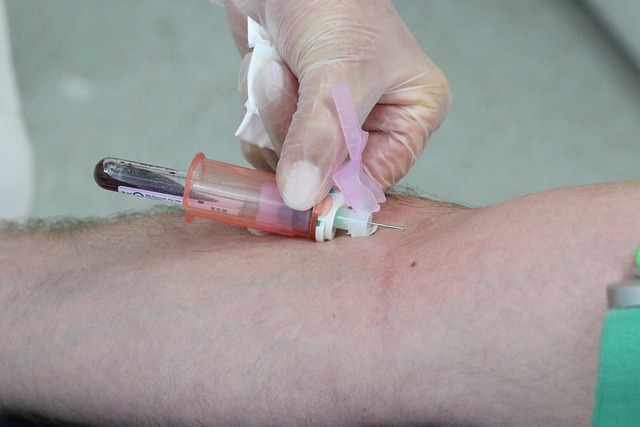In the UK, vitamin B12 deficiency is a growing concern, often overlooked due to its subtle symptoms. At-home blood testing kits offer an accessible solution for early detection, particularly important for vegetarians and vegans at higher risk. These convenient tests empower individuals to monitor health without frequent medical visits, enabling timely action against potential nutrient deficiencies and long-term risks. UK blood test at home services provide accurate, private testing with straightforward processes, quick results, and guidance on managing B12 levels based on ranges (180-950 pg/mL). Always discuss results with a doctor for personalized advice.
In the UK, vitamin B12 deficiency is a growing concern. Recognising the importance of early detection, this article explores how a simple UK blood test at home can help identify this silent nutrient gap. Learn about the signs and symptoms to watch for, understand the testing process, and interpret your results effectively. By understanding vitamin B12 deficiency, you can take proactive steps towards optimal health.
Understanding Vitamin B12 Deficiency
Vitamin B12 deficiency is a growing concern in the UK, with many people unaware they are at risk. This essential nutrient plays a vital role in maintaining healthy nerves and blood cells. A lack of B12 can lead to various symptoms, including fatigue, weakness, memory loss, and even neurological issues. It’s particularly important for individuals who follow vegetarian or vegan diets as B12 is primarily found in animal-based foods.
Home blood testing kits are now widely available, offering a convenient way to check for vitamin B12 deficiency in the UK. These tests allow people to take control of their health by monitoring nutrient levels without the need for frequent doctor’s appointments. Early detection through at-home screenings can be life-changing, enabling prompt action to address any deficiencies and prevent potential long-term health complications.
UK Home Blood Tests for Vitamin B12
In the UK, home blood tests for Vitamin B12 have become increasingly popular as a convenient and accessible way to monitor your health. These at-home testing kits allow individuals to check their Vitamin B12 levels in the comfort of their own homes, providing an easy alternative to traditional clinic or hospital visits. With just a small sample of blood, usually taken from a finger prick, these tests offer quick results, enabling people to take immediate action if necessary.
Many reputable companies now offer UK-wide home blood test services, ensuring accuracy and privacy. The process is straightforward; you order a test kit online, follow the included instructions for collecting your sample, and then send it off for analysis. Results are typically available within days, along with clear explanations and guidance on what the findings mean for your health, helping you to better understand and manage your Vitamin B12 levels.
Interpreting Your Test Results
Interpretation of your UK blood test at home results is a crucial step in understanding your vitamin B12 levels. Generally, a normal range for vitamin B12 is between 180 and 950 picograms per millilitre (pg/mL). However, this can vary slightly depending on the testing lab. If your result falls outside of this range, it may indicate a deficiency. A deficiency is often classified as a level below 200 pg/mL, but this should be confirmed by a healthcare professional.
Don’t panic if you receive an abnormal result. Vitamin B12 deficiencies are treatable, and lifestyle changes or supplements can help restore levels to a healthy range. Always discuss your results with your doctor who can provide guidance based on your individual health profile and recommend appropriate next steps.
In conclusion, vitamin B12 deficiency testing with a UK blood test at home is a convenient and effective way to monitor your health. By understanding the symptoms and interpreting your test results, you can take proactive steps to maintain optimal levels of this essential nutrient. Early detection through regular home testing enables timely intervention, ensuring better overall well-being.
